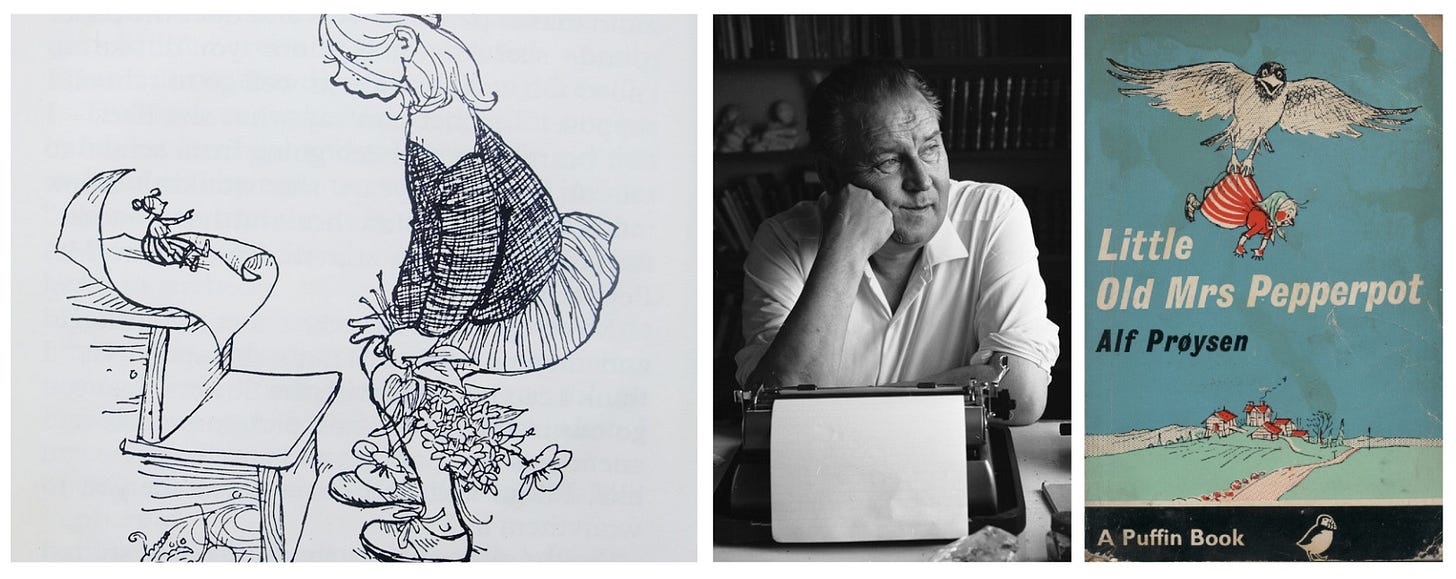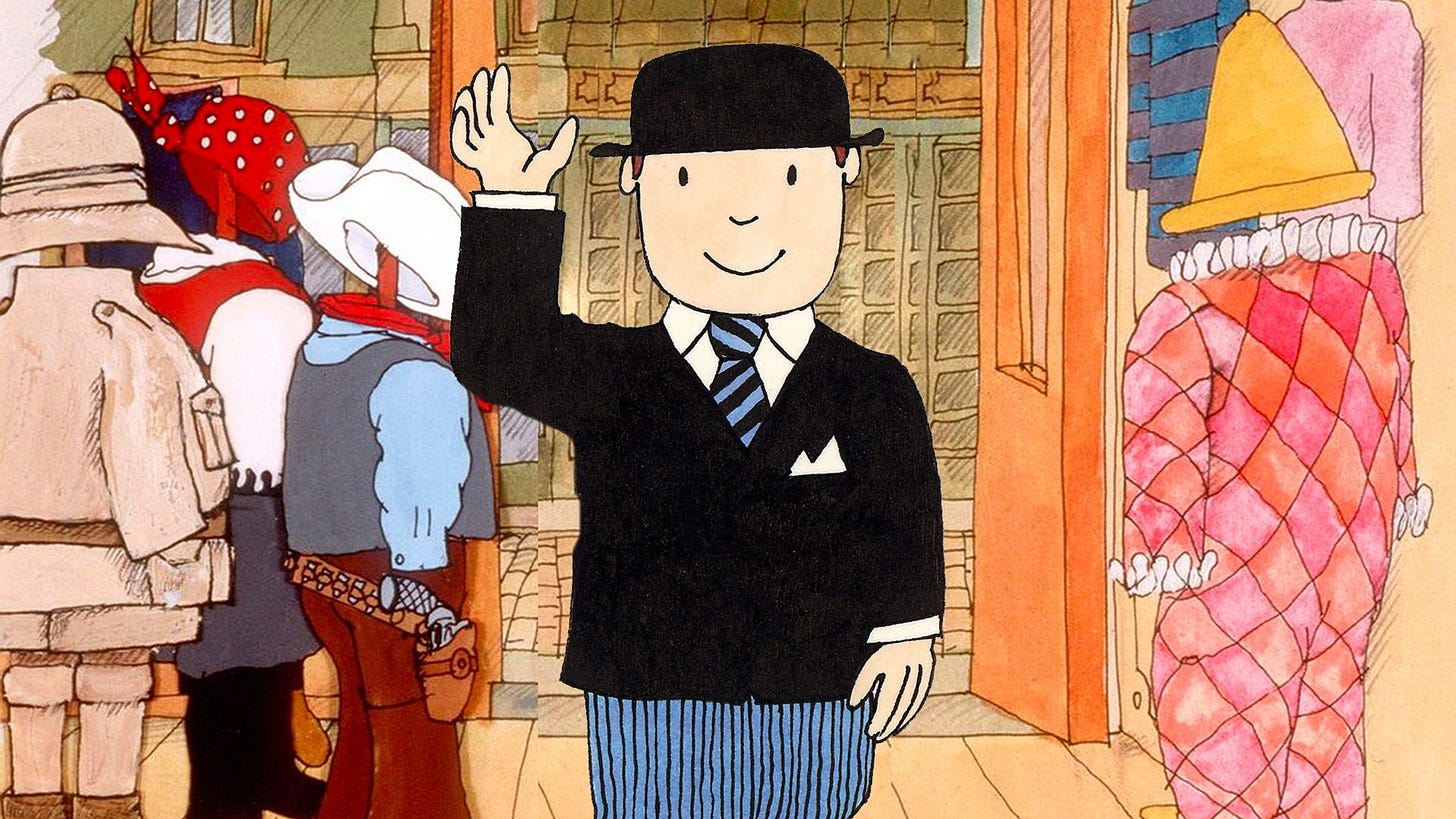“The old woman was almost like a child herself because of this knack she had
of suddenly shrinking to the size of a pepperpot.”
Transformations in Children’s Literature
I’ve been thinking about why I’ve always been drawn to transformation stories.
Before we consciously realise it, we’re grappling with parts of our identity that may be set and other parts that may feel unformed or unreliable. My first taste of a transformation story was David McKee’s Mr Benn, a book that became a TV series in the 70s. Aged three I’d watch during my very British 70s lunch (cod-in-the-bag, mashed potatoes and peas).
Mr Benn, an ever-smiling man in a bowler hat, visits a costume shop, tries on an outfit and leaves via a magic door to embark on an adventure in line with his costume. Then the shopkeeper reappears, leads him back to the changing room and returns Mr Benn to his ordinary, bowler-hatted life.
I think that neatly sums up my predilection for transformation stories. Throw off your ordinary, bowler-hatted life for a while, why don’t you?
One of my favourite transformations as a young reader was Flossie Teacake by Hunter Davies (1982). Flossie (hapless but determined youngest of three) becomes 18 when she wears her big sister’s fur coat. Comically as well as poignantly she retains her pre-teen soul. I remembered how much I’d enjoyed that aspect when I wrote the part of Cat, aged 13, who transforms into Olympic swimmer Fanny Durack, aged 17, in Elsewhere Girls.
I’ve written at length about the impression left on me by Penelope Farmer’s Charlotte Sometimes, whose transformation occurs when she slips back in time and is mistaken for another girl. (Freedom, nostalgia & identity: the Penelope Farmer children's book trilogy).
Sitting somewhere between Mr Benn and Flossie Teacake in my reading life was Mrs Pepperpot by Norwegian writer Alf Prøysen.
“Prøysen’s personal background affected his work profoundly.
Most of his texts are set in his childhood environment and his experiences of growing up
as a crofter’s son are mirrored in his predilection for communicating the underdog’s perspective. Whether in song lyrics or in prose writings for children or adults,
Prøysen always sides with the small.”
Keep reading with a 7-day free trial
Subscribe to Voracious to keep reading this post and get 7 days of free access to the full post archives.






